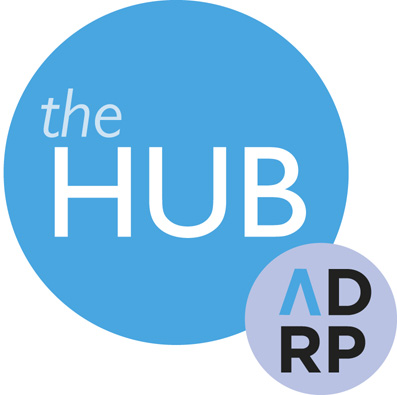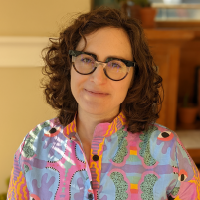
Member Spotlight: Margaret Stutt

Name: Margaret Stutt
Institution: UC Berkeley Haas School of Business
Position: Associate Director of Donor Stewardship
ADRP member for 5 years.
How long have you worked in donor relations/stewardship and how did you get involved in this profession?
I have been working in donor relations for 5 years, as a result of identifying the need in an organization and pitching a new position to help address this gap.
Could you tell us something about the organization you work for?
Berkeley Haas encourages a culture of embodying 4 Defining Leadership Principles: Question the Status Quo, Confidence Without Attitude, Students Always and Beyond Yourself. This values-based culture attracted me to the school, and are helpful reminders of how to continue to challenge myself, and align my work with common values.
What do you like most about being a member of the ADRP?
I love meeting and getting to know people who have similar goals, experiences, and questions mulling around in their heads. We get to benefit from each other’s learning, bounce ideas off of each other, and compare notes so that you can make informed decisions for your organization’s unique circumstances. You hardly ever have to reinvent the wheel because there’s a high chance someone else in ADRP has thought about similar challenges before.
What is your greatest donor relations/stewardship achievement?
It could be when we made someone cry from a meaningful moment, when a donor was so moved by a thank-you video that they pledged a six-figure gift, or when a corporation awarded a second multi-million dollar grant after being thoroughly impressed with our digital reporting and impact measurement.
How big a role does the use of social media play in your work?
We use social media for amplifying the Annual Report, Thanksgiving, and after the campus giving day. Social media is mostly an untapped opportunity for our donor relations work.
What is the most important professional goal you are currently pursuing, i.e., attaining a degree, preparing to give a presentation, launching an initiative at work or in your community, etc.?
I am directing the fundraising strategy as a board member for a mental health advocacy nonprofit, The Stability Network. After just passing the CFRE last month, I am taking a bit of a break from intensive professional development, but I am preparing for a conference presentation this summer and have my eye on Coursera / Executive Education courses in strategy, project management, communications, etc.
What has been your biggest work challenge during Covid-19?
It has been challenging to juggle work and at-home virtual school for a first grader. I’ve also found it challenging at times to have difficult conversations with colleagues in a remote setting, where you don’t benefit from being in the same space and reading nonverbal communication. I appreciate the flexibility of being at home, how I can access work while prepping dinner, etc., but I do miss the relationship building that comes from real human interaction.
Is there a resource, i.e., book, blog, website, etc., that you would recommend to other ADRP members?
My leadership coach assigned “Energy Leadership” by Bruce Schneider, which I thoroughly enjoyed. I also recommend anything by Brene Brown and Simon Sinek. “You are a Badass” by Jen Sincero really changed my worldview and pushed me to dream bigger. My next book is “The Zen Leader” by Ginny Whitelaw.
What is the best piece of professional advice you have ever received?
I hate to admit this, but the best career advice I ever got was from a toxic leader, who told me “Advocate for yourself because nobody else will.” From that moment on, I became more assertive, which has benefited my growth and leadership skills. I’m happy to report that I’m now in an organization where there are plenty of people advocating for each other.
Are there any particular stories, insights, etc., from your experiences in donor relations and stewardship that you would like to share with our colleagues?
I’ve received a dose of praise over the last few years, which mostly results from projects of learning from others and experimenting with new ideas. I think it’s ok to try new things and not assume that the status quo is the best way, that we (as individuals, or as a group) know everything. Sometimes when we experiment we make mistakes, but there is benefit in learning. The quote I lean on most for my work is from Zen master Shunryu Suzuki, “In the beginner’s mind there are many possibilities. In the expert’s mind there are few.” Never give up, keep on exploring, keep on learning. This is a process, a journey, there is no destination.

Back to the May 2021 Hub
|